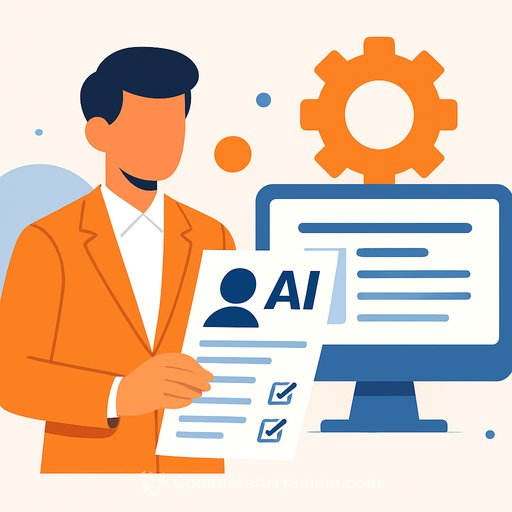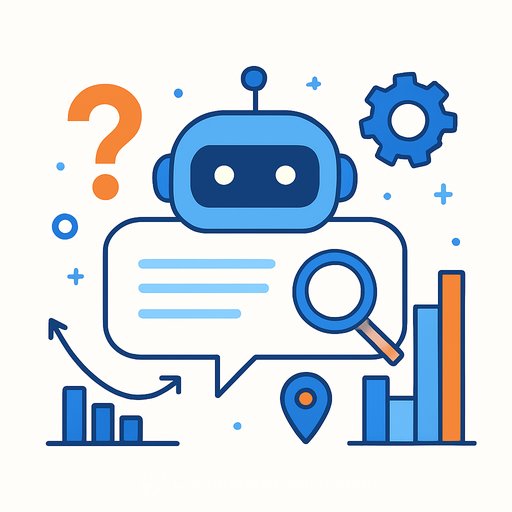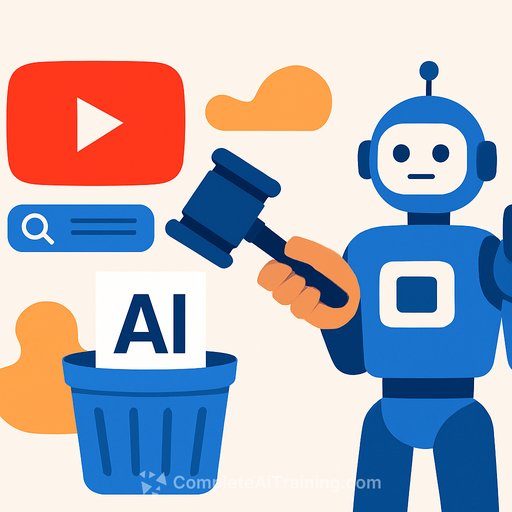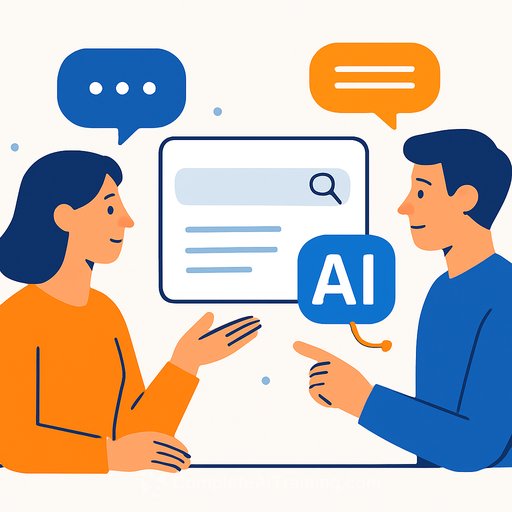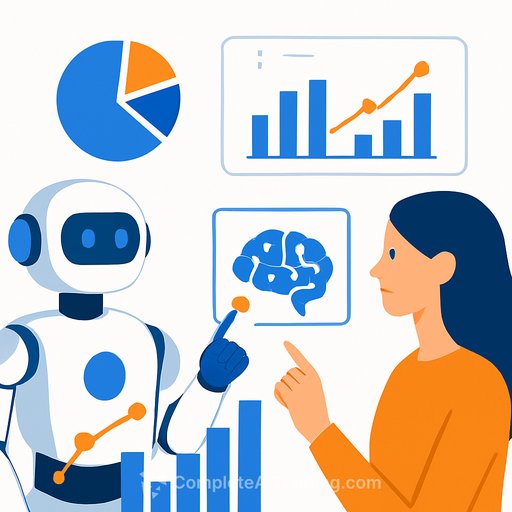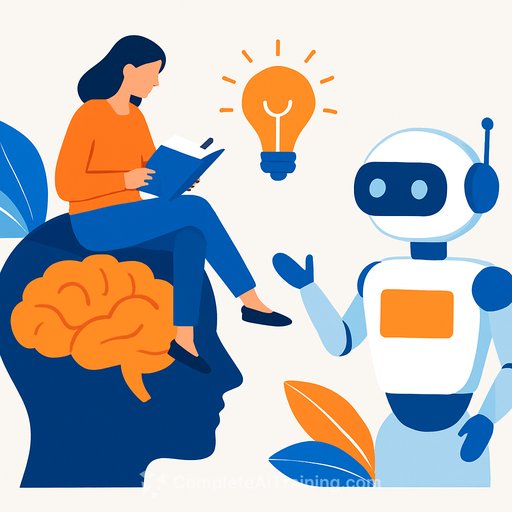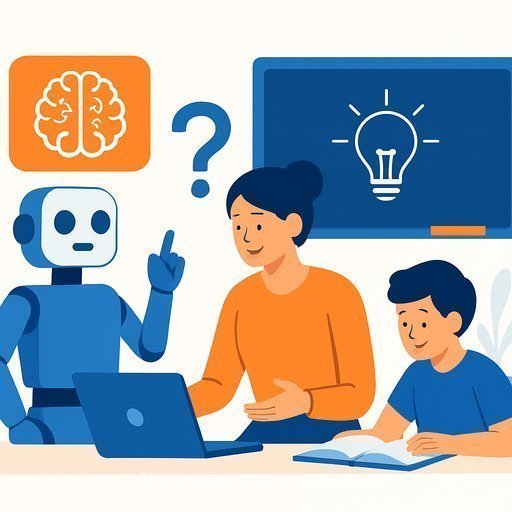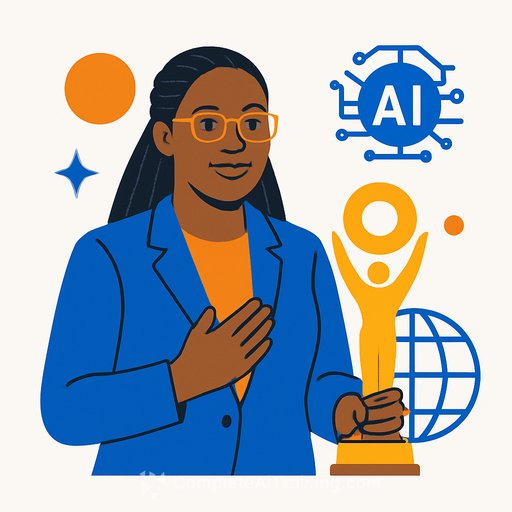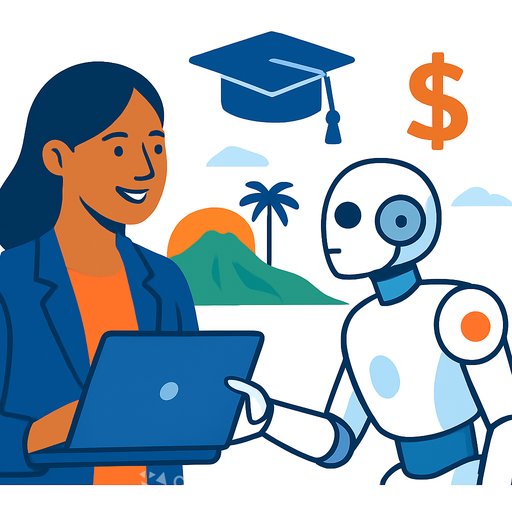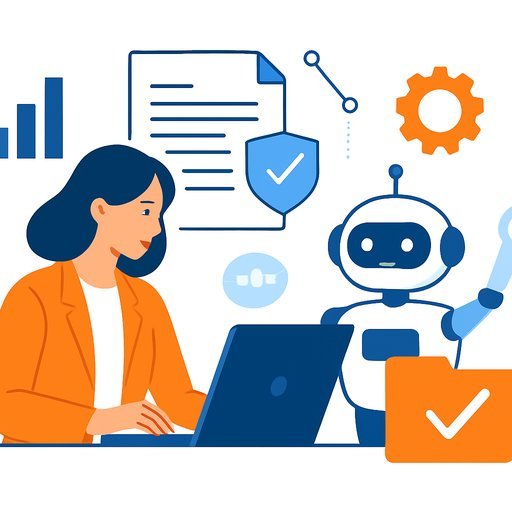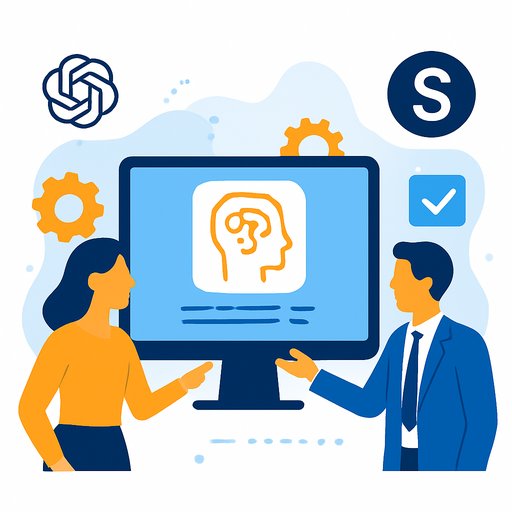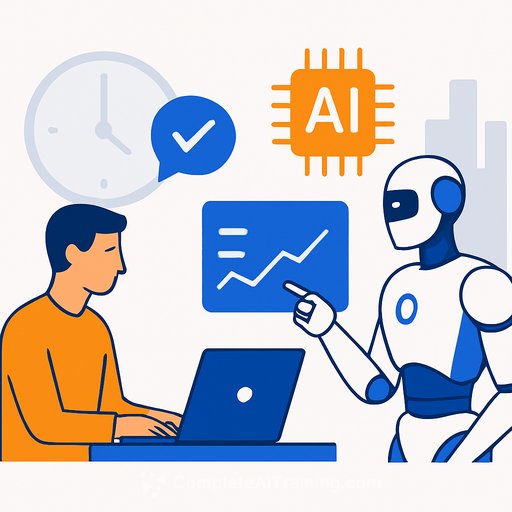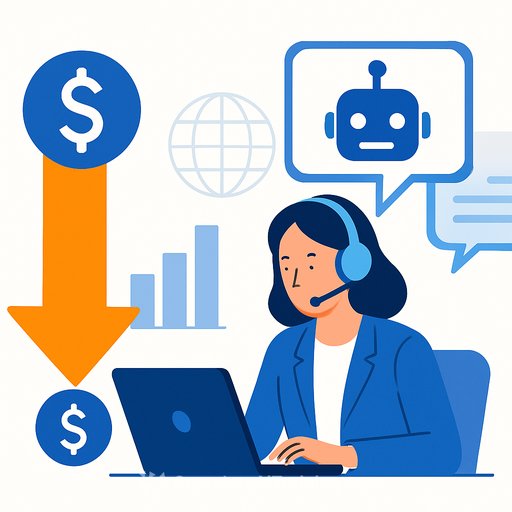How To Account for AI in a Fast-Changing Job Market
AI is changing how work gets done across roles and industries. If you're in Customer Support, Education, or Marketing, your job will likely include more automation, more data, and higher expectations for creativity and judgment.
The goal isn't to compete with algorithms. It's to pair your human edge with smart tools, keep your skills current, and show employers you can learn fast and work well with new systems.
Where AI Shows Up First (and What That Means for You)
Data-heavy functions feel AI's influence the most because there's enough information to train useful models. Customer support, finance, and software development see faster changes. Fields with strict data rules, like healthcare and education, move slower, but small wins still appear in admin tasks and content prep.
Automation will absorb repetitive work. Roles that mix analysis, judgment, creativity, and ethics will grow. That's your lane.
Customer Support
Chatbots and help-center search can solve repeat questions. Your advantage sits in tricky cases, empathy, and resolution strategy. Learn to design workflows that blend AI triage with human escalation, and audit outputs for accuracy and tone.
- Skills: conversation design, prompt QA, metric tracking (AHT, CSAT, FCR)
- Use cases: auto-summarized tickets, sentiment triage, knowledge base drafts
Education
Expect support with lesson planning, quizzes, and grading summaries. Keep student data safe and set clear rules for tool use. Your value is in pedagogy, feedback quality, and building motivated learners.
- Skills: instructional design, assessment strategy, policy literacy on data and AI
- Use cases: rubric generation, lesson outlines, differentiated practice sets
Marketing
Research, drafting, and creative assets get faster with AI. What wins is taste, positioning, and brand voice. Treat models as interns: good for first passes, better with your direction.
- Skills: creative strategy, prompt writing, analytics, channel experimentation
- Use cases: audience research, copy variations, image/video drafts, SEO briefs
Skills That Keep You Hirable
Employers want adaptable people who can solve ambiguous problems and work with new tools. AI can handle repetitive tasks; you bring context, judgment, and originality.
- Adaptability: pick up tools quickly and switch methods when needed
- Problem-solving: define the problem, test small, improve fast
- Digital literacy: prompts, basic analytics, data hygiene
- Creativity and communication: clear writing, sharp thinking, strong presentation
Rethink Education: Degrees, Micro-Credentials, and Proof
Degrees still matter, but employers now prioritize specific skills and proof you can apply them. Micro-credentials and short courses help you fill targeted gaps and show measurable outcomes.
Build a portfolio: ticket resolutions with before/after metrics, lesson plans with student results, campaigns with ROI. If you need a starting point, browse role-based learning paths and certifications that map to your job.
Build a Resume That Passes ATS (and Impresses Humans)
Applicant tracking systems scan for skills and keywords. Mirror the language from the job post-tools, frameworks, and outcomes-without stuffing. Show how you learn and integrate new systems, not just what you've done.
Use a free resume builder or AI assistant to draft, then edit for accuracy, voice, and results. Keep bullets tight and measurable.
- Customer Support: "Cut AHT 18% by routing repeat questions to chatbot; raised CSAT 0.4 pts."
- Education: "Built quiz generator with AI; grading time down 30% while rubric consistency improved."
- Marketing: "Launched AI-assisted testing for ad angles; CPA down 22% across two channels."
For a broader view on future-ready skills employers want, see the World Economic Forum's guidance on jobs and skills here.
Human Skills That Outlast Any Tool
Some abilities don't get automated: emotional intelligence, critical thinking, and clear communication. Data is abundant; sense-making is scarce.
The strongest careers blend technical fluency with soft skills. Be the person who can brief an AI, question its output, and turn results into decisions others trust.
30-Day Action Plan
- Week 1: Pick one workflow to upgrade (ticket triage, lesson planning, ad copy). Map the steps. Identify what to automate, what stays human.
- Week 2: Learn one tool deeply. Create 3 prompts/templates. Track one metric before/after.
- Week 3: Ship a small project and share results (internal Slack, portfolio site, LinkedIn). Ask for feedback.
- Week 4: Enroll in a micro-credential or short course. Update your resume with outcomes and job-post keywords.
Bottom Line
AI is here. Don't fear it. Pair it with your judgment, keep learning in focused sprints, and prove the results. That simple approach will keep you valuable in support, classrooms, and marketing teams.
Disclaimer: The information in this article is for general informational and educational purposes only and is not legal, financial, medical, or professional advice. Do your own research and seek professional guidance for your situation. We are not liable for any loss or damage arising from use of, or reliance on, this content.
Your membership also unlocks:

